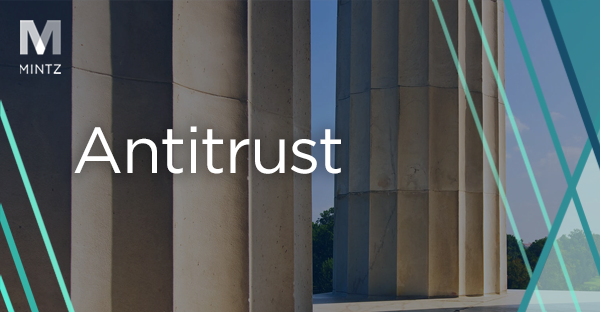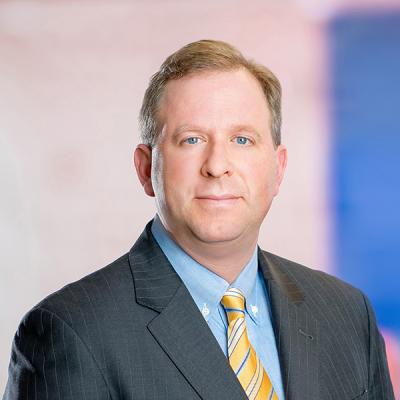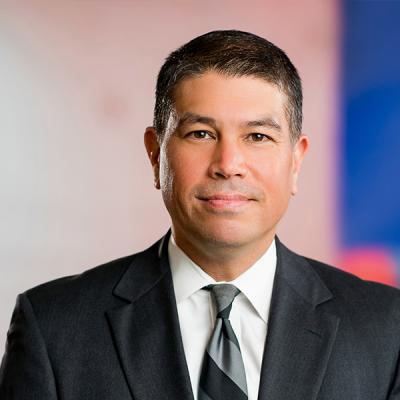Federal and State Lawmakers Launch AI Task Forces — AI: The Washington Report
- On February 20, 2024, House Speaker Mike Johnson (R-LA-4) announced the creation of a bipartisan Task Force on Artificial Intelligence (AI) (“AI Task Force”) composed of 24 members, with 12 from each party.
- The House AI Task Force is to “produce a comprehensive report that will include guiding principles, forward-looking recommendations and bipartisan policy proposals developed in consultation with committees of jurisdiction.”
- Massachusetts Governor Maura Healey signed an executive order on February 14, 2024, creating the Artificial Intelligence Strategic Task Force, a body housed within the Office of the Governor tasked with studying the impacts of AI on the state and recommending policy.
House Speaker Mike Johnson Creates Bipartisan Task Force on AI
On February 20, 2024, Speaker Mike Johnson (R-LA-4) and Minority Leader Hakeem Jeffries (D-NY-8) announced the creation of a bipartisan Task Force on Artificial Intelligence (AI). The task force is composed of 24 members of Congress, with 12 Democrats and 12 Republicans. Jointly leading the task force are Representatives Jay Obernolte (R-CA-23) and Ted Lieu (D-CA-36). A full list of the inaugural members of the Task Force on AI can be seen below.
| Rep. Jay Obernolte (R-CA-23), Chair | Rep. Ted Lieu (D-CA-36), Co-Chair |
| Rep. Darrell Issa (R-CA-48) | Rep. Anna Eshoo (D-CA-16) |
| Rep. French Hill (R-AR-02) | Rep. Yvette Clarke (D-NY-09) |
| Rep. Michael Cloud (R-TX-27) | Rep. Bill Foster (D-IL-11) |
| Rep. Neal Dunn (R-FL-02) | Rep. Suzanne Bonamici (D-OR-01) |
| Rep. Ben Cline (R-VA-06) | Rep. Ami Bera (D-CA-06) |
| Rep. Kat Cammack (R-FL-03) | Rep. Don Beyer (D-VA-08) |
| Rep. Scott Franklin (R-FL-18) | Rep. Alexandria Ocasio-Cortez (D-NY-14) |
| Rep. Michelle Steel (R-CA-45) | Rep. Haley Stevens (D-MI-11) |
| Rep. Eric Burlison (R-MO-07) | Rep. Sara Jacobs (D-CA-51) |
| Rep. Laurel Lee (R-FL-15) | Rep. Valerie Foushee (D-NC-04) |
| Rep. Rich McCormick (R-GA-06) | Rep. Brittany Pettersen (D-CO-07) |
According to a statement released by Speaker Johnson’s office, the AI Task Force will “explore how Congress can ensure America continues to lead the world in AI innovation while considering guardrails that may be appropriate to safeguard the nation against current and emerging threats.” Concretely, the AI Task Force will produce a “comprehensive report that will include guiding principles, forward-looking recommendations and bipartisan policy proposals developed in consultation with committees of jurisdiction.”
The structure and purpose of the AI Task Force mirrors a June 2023 proposal put forth by Representatives Lieu and Ken Buck (R-CO-4) called the National AI Commission Act. As discussed in a previous newsletter, the National AI Commission Act would establish a bipartisan commission of 20 experts tasked with drafting a proposal for comprehensive AI regulation.
The primary difference between Lieu’s proposal and the recently announced AI Task Force is that the former is composed of domain-matter experts while the latter is composed solely of lawmakers. This difference is likely due to the fact that the creation of the AI Task Force within Congress did not require the passage of legislation and, therefore, sidestepped the issue of legislative gridlock.
Speaker Johnson’s creation of the AI Task Force comes at a time when the future of AI legislation in Congress is murkier than ever. The much-anticipated AI Insight Forums, dozens of committee hearings, and the dogged efforts of a bicameral group of legislators have, as of yet, all failed to produce any significant comprehensive proposals for AI regulation.
As President Joe Biden’s October 2023 AI Executive Order continues to enact sweeping changes across the federal bureaucracy, and major jurisdictions like the European Union and the People’s Republic of China move closer to implementing AI regulation, Congressional leaders from both parties have indicated that securing comprehensive AI regulation is a top priority for 2024. Whether and how this new AI Task Force will contribute to this effort has yet to be seen.
Massachusetts Governor Launches Artificial Intelligence Strategic Task Force
On February 14, 2024, Massachusetts Governor Maura Healey signed an executive order establishing the Artificial Intelligence Strategic Task Force (AISTF).
The AISTF is housed within the Office of the Governor and is tasked with studying AI and its impacts on Massachusetts, collecting input on AI from key stakeholders and experts, and advising the governor and her executive branch on AI policy.
Composition of the AISTF
The AISTF is led by the Secretaries of the Executive Office of Economic Development and the Executive Office of Technology Services and Security, as well as two advisory co-chairs selected from among the task force’s members.
One member of the AISTF is selected from a designation by the Senate president, and another from a designation by the Speaker of the House. The executive order requires that the governor appoint at least 22 additional members, including:
- A representative provided by Boston.
- A representative of the Massachusetts Technology Collaborative.
- A representative of organized labor.
- Individuals with knowledge of domain-specific AI applications in fields such as technology, life sciences, healthcare, finance, higher education, and local government.
Members of the AISTF are subject to removal by the governor and are to serve without compensation. The inaugural members of the AISTF are listed here.
Responsibilities of the AISTF
“Members of the task force will collaborate on strategies that keep us ahead of the curve by leveraging AI and GenAI technology,” said Governor Maura Healey in a statement accompanying the announcement of the AISTF. More specifically, the AISTF is tasked by the executive order with the following five responsibilities.
- Identifying opportunities for AI development in key Massachusetts industries such as life sciences, healthcare, and finance.
- Creating strategies to facilitate public investment in Massachusetts-based AI projects, including start-ups.
- Assessing the impact of AI on the state’s labor force and recommending strategies for AI-related job creation and workforce training.
- Recommending policies that promote the responsible use of AI and responding to the legal and ethical issues raised by AI’s development.
- Identifying ways to integrate AI into the operations of the Massachusetts executive branch.
A press release accompanying the announcement of the AISTF indicates that the task force will include working groups focusing on sectors such as education, healthcare, and financial services.
The professionals at ML Strategies will be actively engaging with members of the Healey-Driscoll administration, as well as with members of the AI Task Force, and are encouraged by the governor’s leadership in advancing artificial intelligence in Massachusetts. ML Strategies will also be leveraging its decades of experience and relationship building on Capitol Hill to closely track developments relating to the House AI Task Force and other key committees and stakeholders who are engaging on this issue.
Please feel free to contact us if you have further questions regarding these developments.

Commerce Department Launches Cross-Sector Consortium on AI Safety — AI: The Washington Report
February 16, 2024| Article|
Authors
Daniel J. Connelly
ML Strategies - Senior Vice President and Compliance Officer
Alexander Hecht
ML Strategies - Executive Vice President & Director of Operations
Christian Tamotsu Fjeld
Senior Vice President
Bruce D. Sokler
Member / Co-chair, Antitrust Practice





